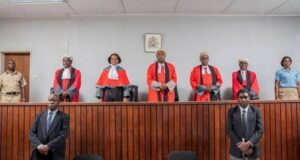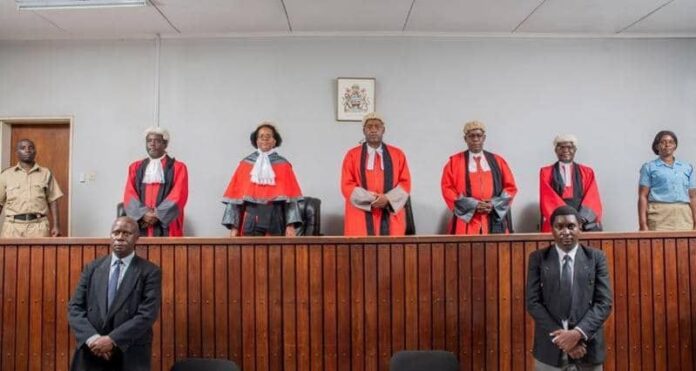By Burnett Munthali
The Democratic Progressive Party (DPP), under President Peter Mutharika, has pledged to restore the rule of law and tackle corruption in Malawi.
In his inaugural address on October 4, 2025, Mutharika declared, “The honeymoon of looting government is over,” signaling a renewed commitment to transparency, accountability, and good governance.
However, the effectiveness of these promises depends on how the administration handles judicial independence, corruption cases, and the overall integrity of Malawi’s legal institutions.

Judicial independence: A cornerstone of democracy
Judicial independence is critical to upholding the rule of law and ensuring justice is administered impartially.
The Malawi Law Society has long called for reforms to strengthen the judiciary, highlighting concerns over systemic corruption and political interference.
Previous administrations introduced the Judicial Service Administration Bill and the Constitution (Amendment) Bill to enhance judicial autonomy, but key elements such as the Courts (Amendment) Bill remain unresolved, leaving questions about government commitment to reform.
The DPP manifesto emphasizes strengthening governance through the rule of law, digitalizing public service delivery, and conducting rigorous audits to prevent corruption (DPP Manifesto).
While these initiatives are promising, their success depends on genuine implementation that protects judicial independence and resists political pressures.
Corruption cases: Testing political will
Malawi has a long history of high-profile corruption cases that have eroded public trust in government institutions.
The previous administration faced criticism for selective enforcement of anti-corruption measures, with some cases delayed or dropped under alleged political influence (Foreign Policy).
The DPP’s commitment will be tested by how it manages ongoing and future corruption investigations.
The Anti-Corruption Bureau (ACB), Malawi’s independent anti-corruption body, has raised concerns about politicization and insufficient resources (ACB Statement).
The government’s response to these concerns will indicate whether anti-corruption efforts are genuine or merely rhetorical.
*Early signals: Balancing promises with actions*
Early actions by the DPP administration present mixed signals regarding its commitment to rule of law and judicial independence.
While the president’s speeches emphasize accountability, public scrutiny and independent oversight are critical to ensure that these commitments translate into tangible reforms.
The Malawi Law Society has urged the administration to uphold the judiciary’s independence and resist attempts to undermine legal institutions.
The handling of corruption cases will serve as a litmus test for political will, shaping public perception of whether justice is genuinely impartial.
Conclusion: A path forward
The DPP’s success in restoring rule of law and combating corruption depends on implementing reforms that strengthen judicial independence, ensure impartial handling of corruption cases, and uphold the integrity of legal institutions.
Early signs suggest a willingness to act, but true commitment will be demonstrated through consistent, transparent, and accountable actions.
Malawians are watching closely to see if the DPP can transform promises into tangible improvements in the justice system.
Call to action
Citizens must hold the government accountable to ensure that justice and fairness prevail.
Advocacy for judicial reforms, support for anti-corruption measures, and demands for transparency in government operations are essential.
Only through collective vigilance can Malawi build a society where the rule of law is respected and justice is accessible to all.



